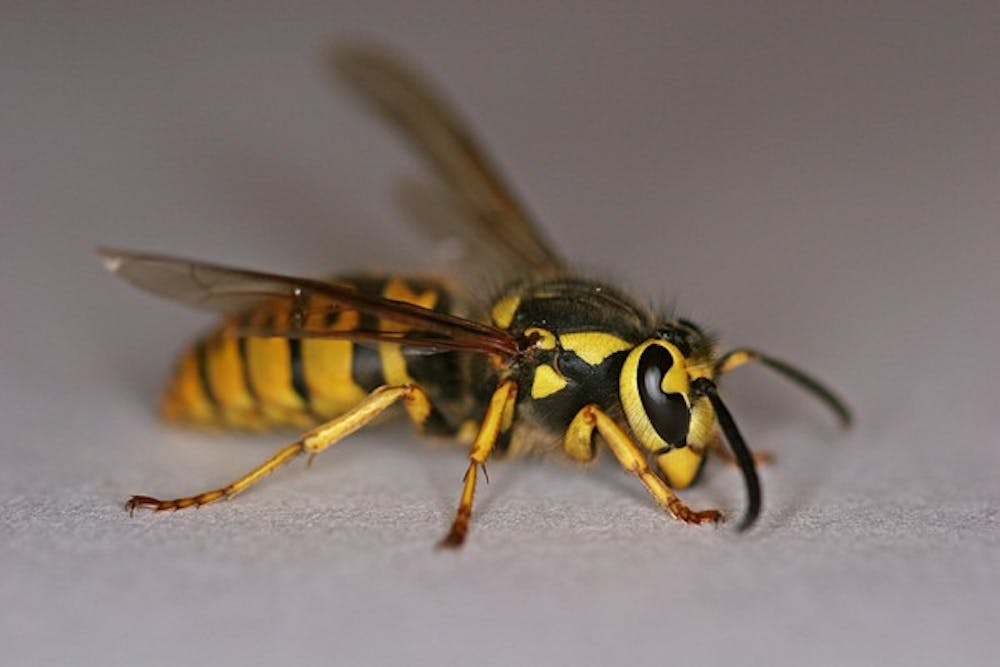
Researchers at Penn Medicine have found a potential solution to antibiotic resistance with bacteria-killing wasp venom.
In a study published Monday, researchers at the Perelman School of Medicine at Penn found antibiotic properties in a protein within the venom of the Korean yellow jacket wasp. The study's findings may be key in the fight against the increasing numbers of antibiotic-resistant bacteria, Penn Medicine News reported, because this peptide could potentially be repurposed into an antibiotic treatment.
According to the CDC, as more antibiotics are employed in fighting illnesses, germs like bacteria begin to mutate and form defenses against antibiotics. Because of this, biomedical researchers are racing to find a solution to antibiotic resistance.
"Antibiotic resistance is one of the biggest public health challenges of our time. Each year in the U.S., at least 2.8 million people get an antibiotic-resistant infection, and more than 35,000 people die," the CDC website reads.
The peptide mastoparan-L, or mast-L, is a key ingredient in the venom of the Korean yellow-jacket wasps. It has bacteria-killing properties that make it an attractive candidate for a new antibiotic. However, it is also mildly toxic to humans, causing the death of red blood cells and an inflammatory immune response, according to Penn Medicine News.
In order to combat the issue of toxicity, the team found that replacing the section that proved most toxic to humans with a pentapeptide motif, a region that correlates strongly with the antibiotic properties of mast-L, is effective in reducing its harmful effects. This altered mast-L protein was called mast-MO, Penn Medicine News reported.
The researchers conducted trials in which mice were infected with otherwise lethal strains of bacteria and were treated with the mast-L and mast-MO peptides several hours later. Eighty percent of the mice treated with the antimicrobial peptide mast-MO survived, whereas the mice treated with mast-L had harmful side effects and a lower survivorship rate, Penn Medicine News reported.
The success of the mast-MO peptide prompted the Penn Medicine researchers to create more forms of the mast-MO peptide. They currently aim to make one or more into viable antibiotics to treat bacterial illnesses and hope to study the antibacterial properties of other venoms as potential antibiotics.
The study's senior author, César de la Fuente, Ph.D., a presidential assistant professor in psychiatry, microbiology, and bioengineering at Penn, told Penn Medicine News that venoms represent an "untapped" source of potential new antibiotic treatments.
In 2018, prior to joining the faculty at Penn, de la Fuente conducted a similar study at the Massachusetts Institute of Technology, where his research team derived and altered peptides from the venom of South American wasps to be used as an antibiotic treatment.
The Daily Pennsylvanian is an independent, student-run newspaper. Please consider making a donation to support the coverage that shapes the University. Your generosity ensures a future of strong journalism at Penn.
Donate




